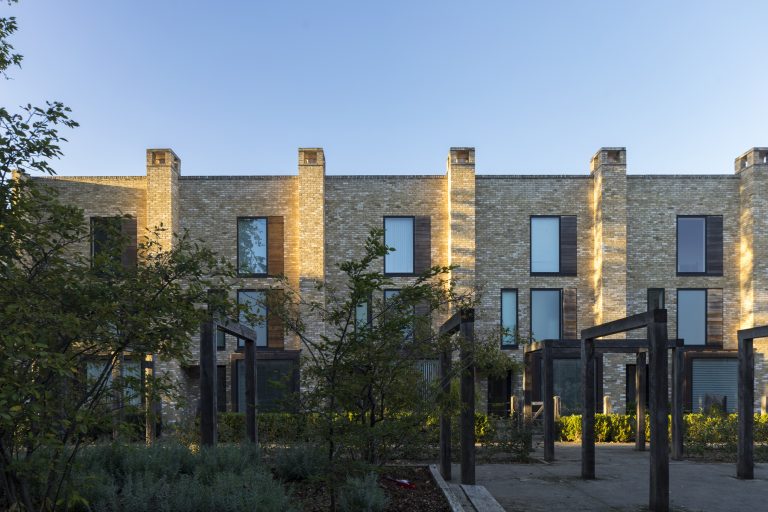UKGBC finds significant opportunities being missed to retrofit commercial buildings

The UK Green Building Council (UKGBC) has launched new guidance on retrofitting large office buildings. Setting out the most cost- and carbon-effective retrofit measures in the immediate and longer term, the guidance reframes retrofit as an iterative process rather than a standalone project.
UKGBC has found that significant opportunities are being missed by office investors, owners, and occupiers who do not have clear retrofit strategies in place. Firstly, through missing the “easy wins” –low cost, low disruption measures that reduce energy consumption – and secondly, through missing key “trigger points” in lease and maintenance cycles that facilitate easier, more efficient retrofit.
For the UK to meet the carbon trajectory set out in UKGBC’s Whole Life Carbon Roadmap, an overall 59% reduction in energy consumption in the office sector is required by 2050.
For the UK to meet the carbon trajectory set out in UKGBC’s Whole Life Carbon Roadmap, an overall 59% reduction in energy consumption in the office sector is required by 2050. Commercial buildings are not currently being retrofitted at the pace or scale necessary, risking the UK not meeting critical net zero milestones.
Without action, many owners will be left vulnerable to stranded assets, as market demand for sustainable space grows and minimum energy efficiency standards (MEES) tighten. 77% of UK office stock currently has an energy performance certificate (EPC) rating below B and is anticipated to be unlettable by 2030.
UKGBC’s report shows that deep retrofit is generally required to achieve deep cuts in operational energy use (60-65%), transition building systems away from fossil fuels, and meet best practice 2030-2035 energy performance targets for offices. Significant reductions in operational energy use are also possible through both optimisation and light retrofit (26% and 15% respectively), and these generally include the most cost- and carbon-effective retrofit measures. Taking intermediate steps can mean deep retrofits can later be carried out more swiftly, with less extensive works.
A lack of clarity from government around MEES deadlines has led to hesitancy or delay among some investors and owners. However, EPC ratings are only an indicator of potential performance and do not reflect actual energy use. UKGBC argues that for policy drivers to be effective in reducing operational carbon emissions, we need a performance-based policy framework. A performance-based framework would also encourage energy optimisation, which is integral to maximising energy efficiency through both light and deep retrofit. Optimisation depends on continued collaboration, monitoring and sharing of data between landlords and occupiers to improve and maintain performance levels.
UKGBC argues that an appropriate balance is required, so that the UK’s planning system encourages retrofit, prioritising climate and nature to support the country’s net zero commitments.
The depth and scale of retrofit can be limited by planning and or heritage concerns where listed buildings or conservation areas are part of the plans. UKGBC argues that an appropriate balance is required, so that the UK’s planning system encourages retrofit, prioritising climate and nature to support the country’s net zero commitments. UKGBC also calls for mandatory measurement and reporting of whole life carbon for major projects, to support evidence-based decision-making and demonstrate the carbon savings of retrofit over new-build.
Yetunde Abdul, Head of Climate Action at UKGBC, said:
Retrofitting our commercial buildings is critical to achieving our net zero carbon goals. The scale of the challenge and the rate of decarbonisation needed means ambitions need to be redoubled, without overlooking the easy wins. If all stakeholders are prepared to collaborate and be transparent, there is huge long-term environmental, social and economic value to be secured.”
UKGBC’s new guidance has been informed by live data and insights shared by a Task Group of industry experts, including representatives of Arup, ISG, British Land, Canary Wharf Group, Deloitte and Lloyds Banking Group. The report includes a range of real-world case studies that provide practical examples of retrofit strategies, and tangible outcomes across arrange of metrics including operational energy performance, whole life carbon emissions and projected returns on investment, as well as health, wellbeing and social value.
Advancing Net Zero Partners
Our Advancing Net Zero work is made possible thanks to our programme partners











Commercial Retrofit Project Partners
Our live projects on commercial retrofit are made possible thanks to our project partners






Related
Six organisations and a group of industry experts join UKGBC to better understand opportunties to retrofit our non-domestic building stock in pursuit of net zero

UKGBC joins industry leaders calling for Government to regulate embodied carbon

UKGBC urges industry to raise ambition on carbon offsetting and pricing

UKGBC launches new series of bitesize learning resources to accelerate sustainability knowledge


